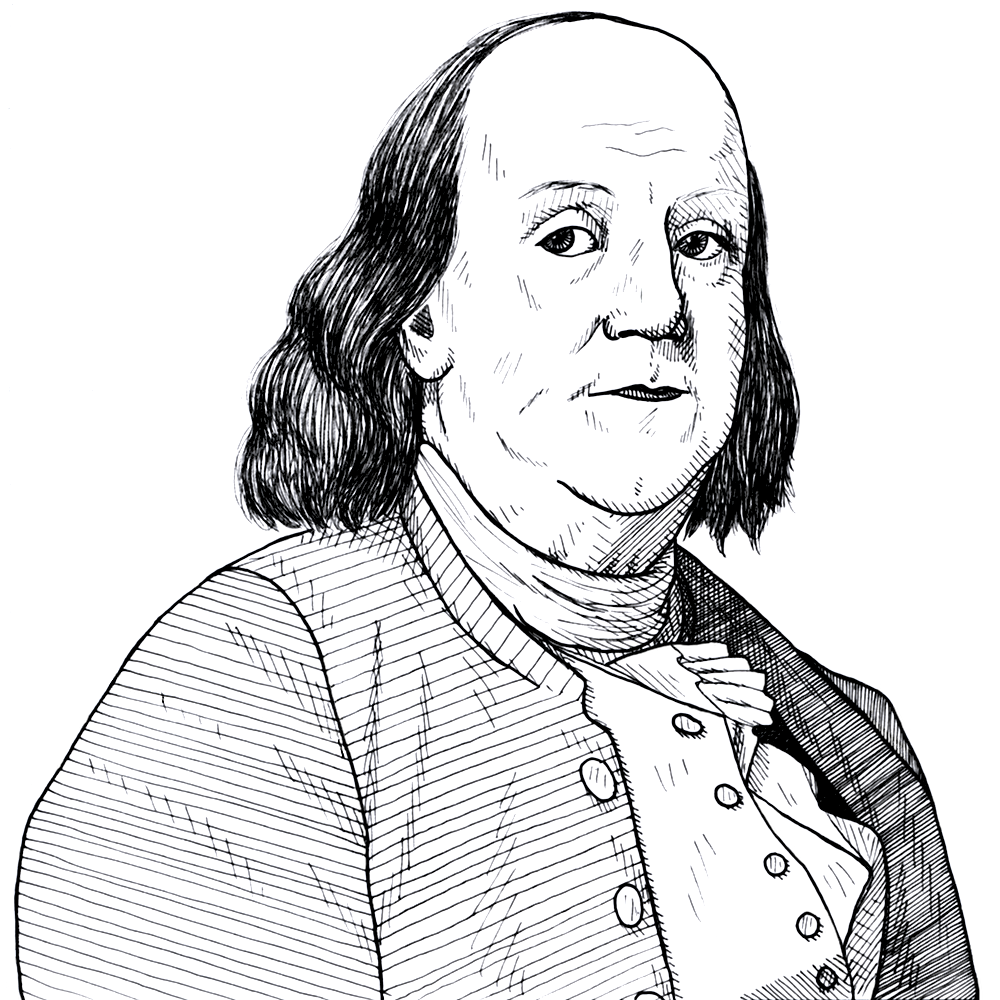
Benjamin Franklin’s List of Virtues for “Clean” Living
Found in: The Works of Benjamin Franklin, Vol. I Autobiography, Letters and Misc. Writings 1725-1734
Many in the founding generation looked to antiquity for models of exemplary behavior. On occasion John Adams admitted his admiration for and desire to emulate Cincinnatus and Cicero. George Washington had a fondness for Cato (or at least Addison’s play Cato), and as an adolescent copied into his notebook over 100 “rules of Civility and Decent Behavior” from an English translation from a French book of maxims. Benjamin Franklin also kept a book in which he copied rules for virtuous behavior, which contained quotations from Addison, Cicero, and the Proverbs of Solomon.
In addition to modeling his behavior on historical examples, Franklin decided on a more direct approach in shaping his character. He identified key moral virtues and ordered them from the most foundational and essential to the lesser virtues. Here is his list of virtues, found in Part II of his Autobiography.
Society
These names of virtues, with their precepts, were:
1.: Temperance: Eat not to dullness; drink not to elevation. 2.: Silence: Speak not but what may benefit others or yourself; avoid trifling conversation. 3.: Order: Let all your things have their places; let each part of your business have its time. 4.: Resolution: Resolve to perform what you ought; perform without fail what you resolve. 5.: Frugality: Make no expense but to do good to others or yourself; i. e., waste nothing. 6.: Industry: Lose no time; be always employ’d in something useful; cut off all unnecessary actions. 7.: Sincerity: Use no hurtful deceit; think innocently and justly; and, if you speak, speak accordingly. 8.: Justice: Wrong none by doing injuries, or omitting the benefits that are your duty. 9.: Moderation: Avoid extreams; forbear resenting injuries so much as you think they deserve. 10.: Cleanliness: Tolerate no uncleanliness in body, cloaths, or habitation. 11.: Tranquillity: Be not disturbed at trifles, or at accidents common or unavoidable. 12.: Chastity: Rarely use venery but for health or offspring, never to dulness, weakness, or the injury of your own or another’s peace or reputation. 13.: Humility: Imitate Jesus and Socrates. (FROM: CONTINUATION OF THE ACCOUNT OF MY LIFE, BEGUN AT PASSY, NEAR PARIS, 1784)